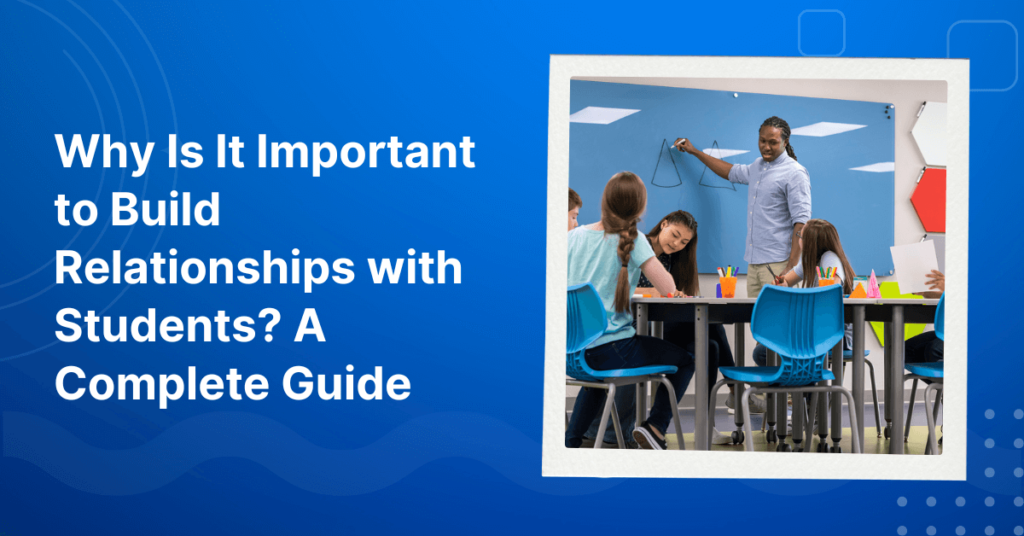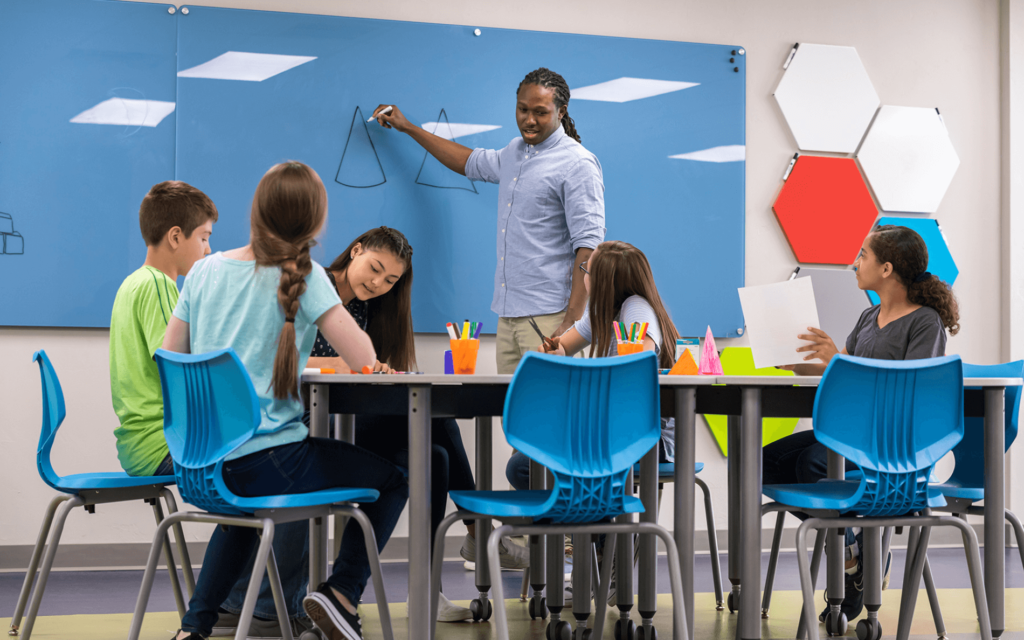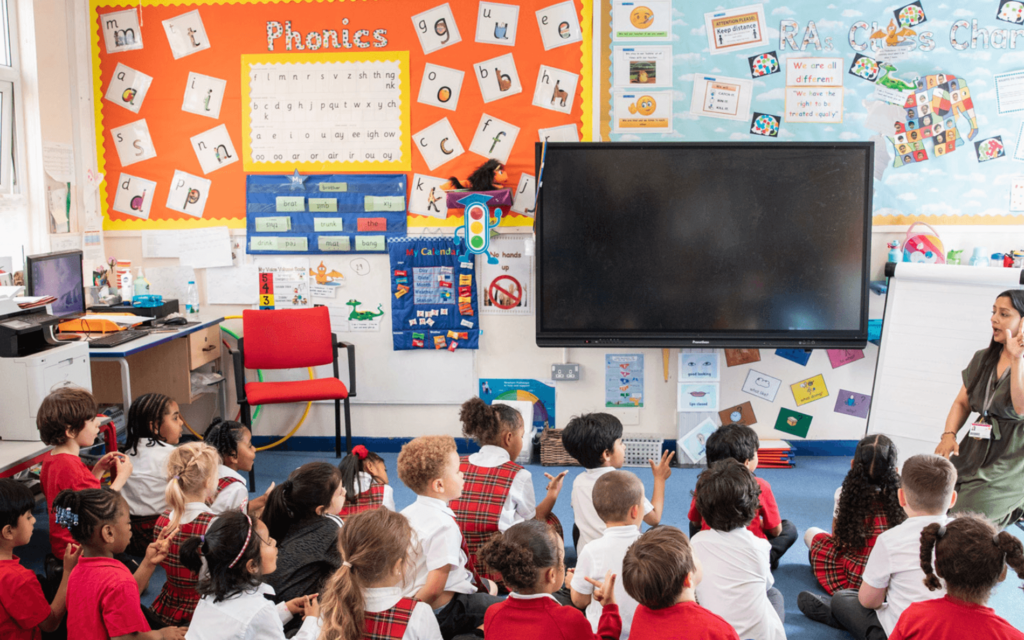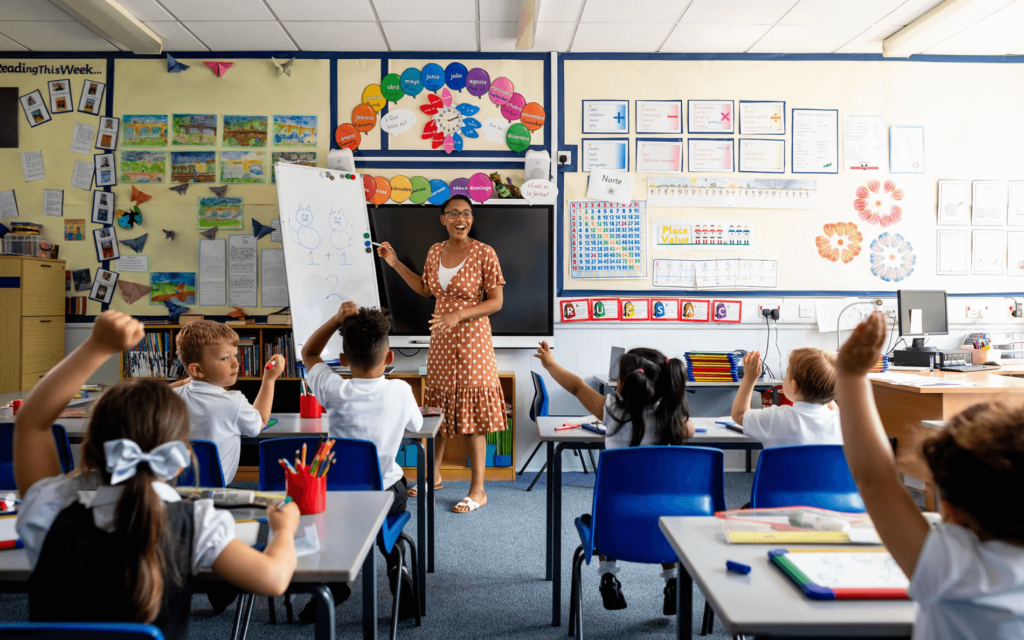
Why Is It Important to Build Relationships with Students? A Complete Guide
Building strong relationships between teachers and students is a fundamental cornerstone of effective education. These meaningful connections create a supportive learning environment where students feel confident to participate, ask questions, and express their concerns. Research shows that positive teacher-student relationships significantly enhance academic performance, emotional well-being and classroom engagement. Understanding why these relationships matter is crucial for creating successful educational outcomes.

1. What Makes Positive Teacher-Student Relationships Essential in Education?
1.1 How Do We Define Effective Teacher-Student Relationships in Modern Education?
A positive relationship between a teacher and a student is when they trust each other, respect each other, and care about each other’s feelings. This means that teachers are friendly and kind, and students feel comfortable to ask questions, share their thoughts, and be themselves.
1.2 Why Are Strong Relationships Fundamental to Educational Success?
In school, relationships are the key to creating a fun and safe place to learn. When students feel like their teacher is on their side, they feel better about coming to school and trying their best. If a teacher listens to you, understands how you feel, and helps you when you need it, it makes learning more exciting and less scary.
1.3 What Are the 3 Core Elements of Successful Teacher-Student Connections?
For a teacher-student relationship to work well, there are a few important things that need to happen:
- Trust: Students need to trust that their teacher will be there to help them, and the teacher needs to trust that students will try their best.
- Communication: Talking to each other is really important. Students should feel like they can ask questions, and teachers should be ready to listen.
- Respect and Empathy: Both the teacher and the student need to understand each other and treat each other kindly. When you feel like your teacher cares about you, you care more about the work they ask you to do.
Discover Related Guides: How to Deal with Defiant Students in the Classroom

2. How Do Strong Teacher-Student Relationships Drive Academic Achievement?
2.1 What Academic Benefits Do Strong Teacher-Student Relationships Provide?
Why does feeling close to your teacher help you learn? When students feel comfortable and safe with their teacher, they are more willing to learn. You know how it feels when someone encourages you or tells you that you’re doing a great job? It makes you want to keep going, right? Well, this is what happens in class too. If your teacher believes in you, you feel more excited about learning new things!
Better grades and learning results: When teachers and students have a positive relationship, students are more likely to try their best. This means they do better in school because they feel supported and motivated. Imagine you’re learning something tricky, but your teacher is there to explain it and cheer you on. That’s how positive relationships help you do well in your studies.
A safe place to learn: A teacher who cares about you makes the classroom a safe place. When students feel safe, they are more willing to ask questions or try new things. They don’t have to worry about being embarrassed if they don’t understand something because they know their teacher will help them without making them feel bad.
2.2 How Do Positive Relationships Impact Student Mental Health and Emotional Growth?
Less stress and worry
Sometimes school can be stressful, right? Maybe you have a big test or a lot of homework. But when you have a teacher who is there to listen and help you, it feels much easier to handle. Good teacher-student relationships help students feel less worried and more confident in themselves.
Feeling good about yourself
When your teacher encourages you and praises your efforts, you start to feel proud of yourself. This builds your confidence and makes you believe that you can do anything if you try hard enough. Positive relationships make students feel like they can achieve their goals.
Belonging in the classroom
Have you ever felt like you didn’t fit in or didn’t belong? That’s a hard feeling. But when teachers care about their students, everyone feels like they are part of the group. A teacher can make sure that no one feels left out, which helps students be happier and more confident in school.
Becoming stronger and more resilient
Good relationships also teach students to be strong. Sometimes, things don’t go as planned, like getting a bad grade or facing a tough challenge. But when you know your teacher is there to support you and help you learn from mistakes, you get better at handling difficulties. This helps you grow stronger and more resilient.
2.3 What Behavioral Improvements Result from Strong Teacher-Student Bonds?
Better behavior in class
When students have a good relationship with their teacher, they are more likely to follow the rules. That’s because they trust and respect their teacher. A classroom where students feel valued is usually a calm and respectful place.
Enjoying learning
When students feel good about their teacher and their classroom, they are more likely to enjoy learning. They want to participate and be involved. This makes the whole learning process more fun for everyone.
Improved social skills
Positive relationships help students learn how to interact with others. If your teacher encourages group work, helps you talk with your classmates, and shows kindness, you learn how to be a better friend and communicator.
More participation and attendance
When students feel close to their teacher, they want to be in class. They don’t want to miss out on the fun or the support that their teacher gives them. This means students are more likely to show up to school and participate in lessons.
Continue Learning: What are the 5 R’s of Classroom Management?

3. What Are the Most Effective Methods for Building Student Relationships?
3.1 Which Daily Practices Help Teachers Build Lasting Student Relationships?
- Getting to know students personally: Teachers can build strong relationships by showing interest in their students’ lives. Asking about hobbies, favorite activities, or even how their weekend went can help students feel like their teacher really cares about them.
- Making learning fun and interesting: Teachers should try to make lessons fun and exciting. When students enjoy learning, they are more likely to stay engaged and pay attention. A teacher who can make lessons interesting is someone students will love to learn from.
- Talking and listening openly: A teacher who listens carefully to students helps them feel important. Encouraging students to speak up about their thoughts and feelings makes them feel heard. This open communication builds trust and understanding.
- Celebrating student achievements: When students do well, teachers should praise them. This could be a simple “Good job!” or celebrating a big accomplishment. Recognition makes students feel proud of their efforts.
3.2 How Can Schools Implement School-Wide Relationship-Building Programs?
- Training for teachers: Schools can help teachers build better relationships by providing training on how to connect with students. This gives teachers new skills and ideas for making their classrooms even more welcoming and supportive.
- Creating a friendly school environment: Schools should have a culture where all staff, not just teachers, care about the students. This means everyone at school – teachers, principals, and even custodians – should be friendly and respectful. When everyone works together to support students, it makes school a better place for learning.
- Encouraging friendships between students: Schools can also help by creating opportunities for students to build friendships with each other. Group activities, team projects, and school events help students form strong connections with their classmates.
4. How Can Teachers Measure and Maintain Strong Student Relationships?
- Assessing relationships: Teachers can ask students for feedback to see if they are feeling supported. Teachers can also observe if students are participating more in class and showing improvement in their work.
- Evaluating Long-Term Impact: Over time, schools can track things like how well students are doing in school, how often they show up for class, and how they behave. If students are doing better and feel more comfortable, it’s a sign that the teacher-student relationships are strong.
- Keeping the relationship strong over time: Building a relationship doesn’t stop after a few weeks or months. Teachers should keep showing interest in their students and checking in with them throughout the year. Small gestures of care and encouragement help maintain the relationship.
Explore More Teaching Tips: What Are Four Simple Classroom Rules?

5. FAQS
How long does it typically take to build meaningful relationships with students?
Building a strong relationship with students takes time, but it doesn’t have to take forever. In fact, many teachers can start building trust with their students within the first few weeks of school. How quickly the relationship grows depends on a few key things:
- How much effort the teacher puts in: If a teacher takes time to listen, show kindness, and be patient, students will feel comfortable opening up sooner.
- The student’s personality: Some students are naturally more outgoing and may trust their teacher quickly. Others might be shy or have had bad experiences in the past, so they need more time to feel safe.
- Consistent actions: It’s not enough to be kind one day and strict or distant the next. Students notice when a teacher is consistent. When teachers show care every day, relationships grow stronger.
For example, a teacher might start by greeting students warmly every morning or asking about their weekend. Small actions like these can build trust little by little. Over a few weeks or months, as the teacher keeps showing interest and encouragement, students begin to feel more connected.
In the end, building positive relationships with students is more than just a nice thing to do. It’s the key to creating a happy, safe, and effective learning environment. When students feel cared for, they do better in school, feel more confident, and are better prepared to handle life’s challenges. Teachers and students working together in a positive, supportive relationship can make school a place where everyone can succeed and grow. So, why is it important to build relationships with students? Because when teachers and students trust and support each other, amazing things happen!






